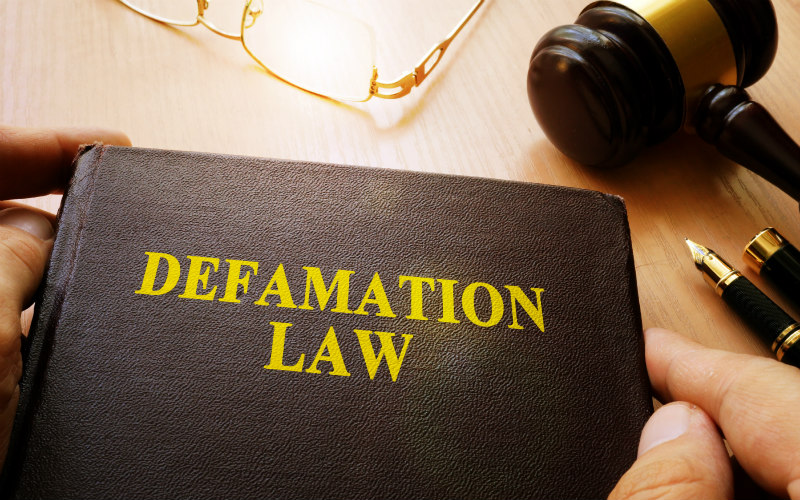
Can your personal opinion ever be classed as defamation of another individual?
Over the past week, the media spotlight has been firmly focused on the former White House Strategist, Steve Bannon, after describing a meeting between Trump Jr and Russian Lawyers as “treasonous” and “unpatriotic” the newly published book written by Michael Wolff. Also contained within the “Fire and Fury: Inside the Trump White House” publication are allegations that the American President is not fit to serve the country and Trump’s daughter Ivanka being described as “dumb as a brick”.
It has been reported that Bannon, Wolff and Steve Rubin (the president of the book’s publisher- Henry Holt and Co) have been served with a cease and desist letter by President Trump’s lawyers prior to publication, alleging that the book contains “outright defamatory statements” and revealed confidential information that violated a non-disclosure agreement that all Trump campaign staff were made to sign.
The CEO of Henry Holt’s parent company, Macmillan Publishers, has taken a firm stance against the threatened legal action taken by President Trump. Not only was the publication date brought forward from the 9th January to the 5th, a memo has now been released to all Macmillan employees, stating that the cease and desist demand is “flagrantly unconstitutional”. Trump’s effort to halt publication is described in the memo as an attempt to intimidate the publishing company. The First Amendment (Constitutional Free Speech) is referenced as the legal argument against censorship, re-affirming the view that any restraints on free speech and publication are an infringement on First Amendment rights and therefore undemocratic.
The events surrounding the publication have sparked worldwide debate regarding the difference between simply expressing an opinion and giving a statement that the audience understands to be true, which would be harmful to the character, honour or reputation of the affected person.
Broadly speaking, defamation in Scotland is a wrongdoing whereby a person makes a verbal or written communication which contains a damaging and untrue statement against another individual, which damages their reputation. Whether the communication is defamatory is a matter for the courts to decide, with the burden of proof normally resting with the person who was allegedly defamed. However, the burden of proof shifts depending on the defence. If the defence used is veritas (truth) then the burden of proof would shift to the statement maker.
In Scotland, the law on defamation has been shaped through “common law” over hundreds of years, with the law evolving through court cases. Recently though, the Government has taken steps to codify and clarify the law in this area, and has just published a draft of the new Defamation and Malicious Publications (Scotland) Bill, which amends the current law on defamation in Scotland. This move follows the example of England and Wales, who have had defamation legislation in place for many years. The Defamation Act 2013 reformed the law of defamation in England and Wales, which widened the gap between the law in Scotland and the rest of the UK.
Now that the working draft has been published, it shows changes which aim to help protect free expression across the country. Key reforms include:
- The implementation of a single publication rule. Currently in Scotland, there is a multiple publication rule meaning that every time a statement is published, read or re-publishes, a new right of action arises. The change would ensure that liability remains with the original publication and does not extend the time within which an action can be brought if the content is shared or retweeted;
- An honest opinion defence that protects the free and open sharing of opinion and expression, both online and off;
- Requiring the defamatory statement to be a communicated to a third party;
- The inclusion of a serious harm test to ensure vanity cases, and those brought solely to silence others, cannot make it to court.
- Common law defences such as truth (called veritas in Scotland) and honest opinion will be given statutory recognition and the defence of public interest will also be included.
If this case arose in the UK, Trump and Bannon would have slightly different criteria to meet in court depending on whether they were in Scotland or England and Wales. In Scotland at present, there is no “serious harm” threshold for the person who has been defamed to prove to the court. However, in England and Wales, President Trump would have to prove that the publication has caused, or is likely to cause, “serious harm” to his reputation. It is up to the court to decide how they interpret “serious harm” in each case. Scotland still has the defence of fair comment which Bannon could use, which is where honestly held comments or opinions based on fact are protected. However, England does not have this defence and instead has the defence of “honest opinion”, which is where an honest person could have held the opinion on the basis of any fact which existed at the time the communication was published. It is safe to say that many people find Trump a controversial figure and many of the topics covered by Bannon in Wolff’s book are widely discussed. There is a public interest defence in England but Scotland has a ten point common law test (called Reynolds Privilege) considering criteria for responsible journalism.
Whether Wolff’s book is factual or not is up for debate. Due to defamation law being so closely tied to the First Amendment in the USA, the law is more defendant friendly in the USA than in the UK’s common law legal system. Trump vs Bannon (if it ever makes it to court) will definitely be a case to follow for anyone interested in how our freedom of speech and defamation laws continue to evolve on both sides of the pond.
